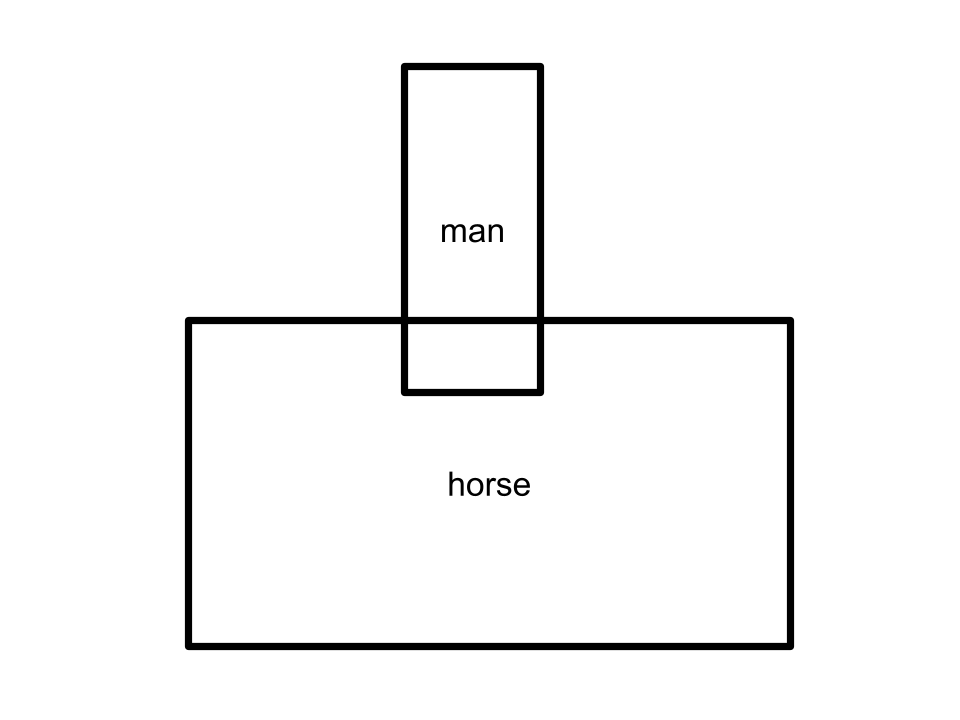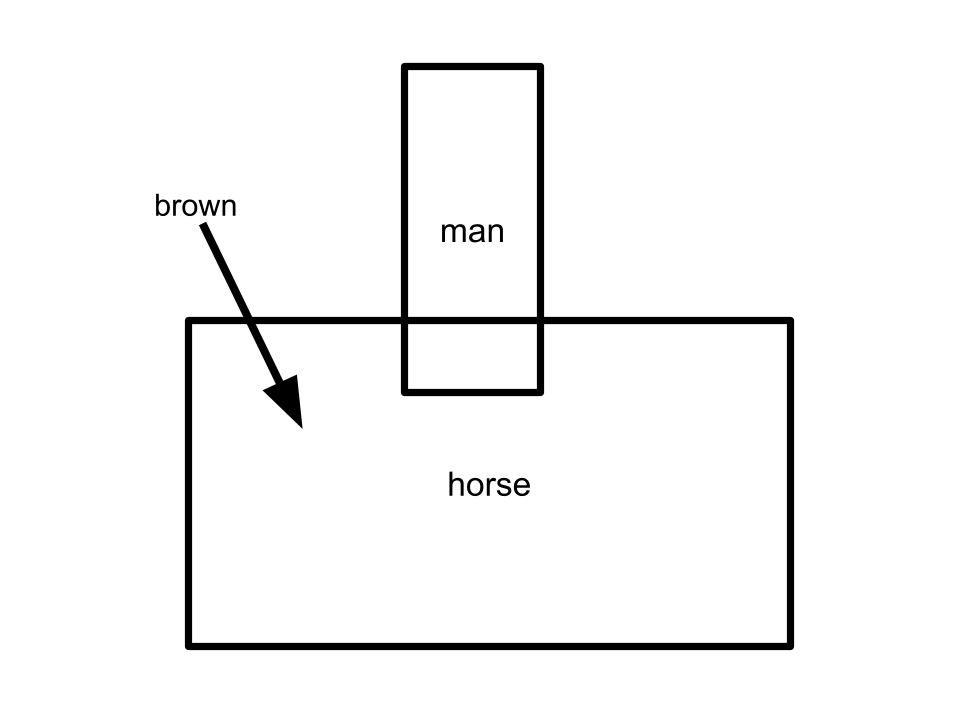Do aphantasiacs dream of invisible sheep?
I taught myself to lucid dream to find out if I have visual dreams
2025-09-20
Aphantasia is the inability to visualize things in one's mind.
It took me over 20 years to find out that this was a rare condition and not just the default state of the human mind.
If you had told me "imagine as vividly as you can, a cowboy riding a horse" and then asked me "what color is the horse?", I would have responded: "I don't understand the question". Because there's nothing in my mind--it's just the abstract concept of a man on a horse, like the output of an object detection model:

Was I supposed to give the horse a color? Ok there we go:

I operated under the assumption that "visualization" was purely metaphorical--a linguistic convention for conceptual thinking rather than literal sensory experience. This misconception proved remarkably persistent (a testament to the power of the typical mind fallacy). When I encountered a study showing that athletes could improve their freethrow accuracy through visualization alone, achieving comparable results to physical practice, I simply integrated this new data point into my flawed model. Of course contemplating the abstract concept of throwing the abstract concept of a ball into the abstract concept of a net would enhance performance. The interpretation somehow seemed perfectly coherent.
But then I started getting really into chess and I found out chess masters could play blindfolded. In fact, many preferred to close their eyes or look at the ceiling when calculating a line because real visual information about the actual current pieces on the board would clash with the imagined visuals from their mental board. Meanwhile, I was straining to calculate long lines conceptually and running up against the limits of my working memory. I investigated, and it turns out I do not in fact have a "typical mind". I have aphantasia.
So how robust is this restriction? Can I dream visually? This was a hard question to answer because my memories are not visual. When I think back on my night, I remember the concepts of dreams but no visuals. Does this mean I dream in concepts or can I just not remember the visuals because that's outside of the capabilities of my memory?
To answer this question, I taught myself to lucid dream (being fully conscious while dreaming). Skilled lucid dreamers can control their dreams and experience them as vividly as waking life. My mom does this naturally and uses that dream time to work on problems (and she didn't realize that this was abnormal--the typical mind fallacy strikes again).
Inducing a lucid dream is quite simple: become aware that you're dreaming. But this is also quite difficult because most of us are completely confident that the dream is real no matter how unrealistic it is. The typical advice is:
- Keep a dream journal. This is to strengthen your dream recall. And I'm guessing that the extra time spent thinking about dreaming increases the prevalence of the concept of dreaming in your subconscious, thus making it more likely to pop into your mind while dreaming.
- Do a "reality check" throughout your day to see if you're dreaming. You can do this after a cue like walking through a doorway, or you can just do it often enough that it becomes a habit that the dreaming version of you will do unconsciously.
For my reality check, I chose pinching my nose and trying to breathe through it. The logic is that the sensation of breathing while dreaming is tied to the actual physical breath so holding my dream nose would have no effect.
So for literally hundreds of times a day, I would pinch my nose and try to breathe. I tried to not autopilot any of it or make any assumptions--I would force myself to fully expect any outcome. It must've been fun for those around me to witness a fully grown man pinch his nose, struggle to breathe, turn a bit purple, gasp for air, then look mildly surprised about what had just happened.
And then one night while having an absurd dream, I thought "I'm fully confident this isn't a dream, but I should do a reality check anyway" and I could breathe through my pinched nose--it worked--but the excitement of realizing I was dreaming promptly woke me up. After a few attempts, I was able to stabilize it and have a fully lucid dream.
The result of this experiment is: yes, I do dream visually. It's as vivid as real life. And I was able to fully control my dream with the power of expectation (e.g. "in 1 second when I turn around, I'm 100% confident that I'm going to see Hogwarts"). I guess my prefrontal cortex is capable of top-down control over my visual cortex after all. Which gives me hope that I could learn to do this in waking life.
Of course, when I woke up the next morning, I could not remember any of the visuals... but I remembered the thought "huh, I do dream visually".